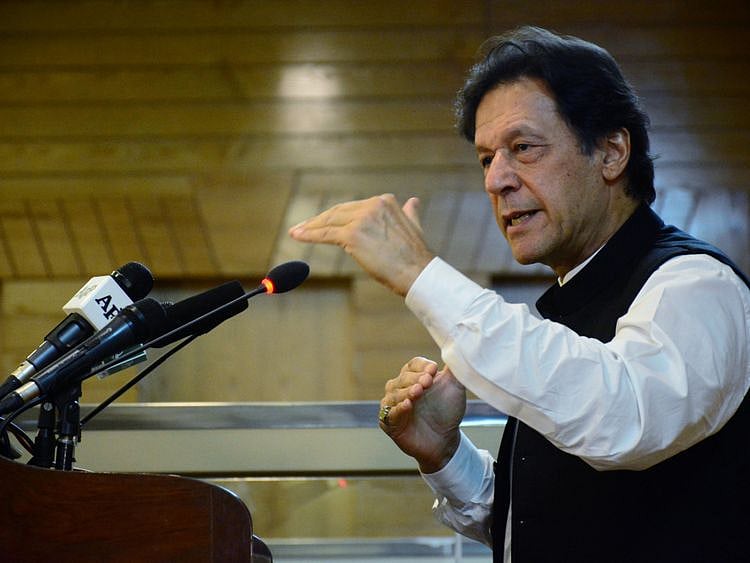In the past fortnight since India withdrew a special status for the disputed state of Jammu and Kashmir, Pakistan’s Prime Minister Imran Khan has led a vocal charge to reverse the move. Across the country on Thursday, Pakistan’s flag remained at half mast in recognition of a day of solidarity with Kashmir — coinciding with India’s annual independence day.
On Friday, Pakistan’s request to the UN Security Council to discuss the matter which has evoked the latest round of tensions between the South Asian neighbours, came under discussion in New York.
Meanwhile, the intensity of crossfire between the Indian and Pakistani militaries in Kashmir has escalated in recent days, causing loss of lives and properties on both side.
Given the latest build-up, it is clear that the ongoing round of frictions between India and Pakistan is just not likely to end any time soon. For Pakistan, the reaction to recent events in Kashmir has been driven by the centrality of the disputed region to Islamabad’s foreign policy. And Pakistan’s leaders have joined local politicians in the part of Kashmir under India’s administration to claim that Prime Minister Modi’s removal of the region’s special status will inevitably allow people from across India to buy out properties in the picturesque region. Exactly how and when the tragic saga of Kashmir will lead to a period of calm and peace, remains unclear.
But as Pakistan becomes embroiled in the latest round with India, its ability to exert its influence worldwide will depend on the way the country handles itself internally. On the foreign front, events in Afghanistan from where US President Donald Trump is seeking to withdraw the bulk of American troops will be one important element for Pakistan’s profile.
In the recent past, since American negotiators began round after round of peace talks with Taliban representatives, Pakistan’s crucial role in resolving this matter has popped up time and again. Pakistan’s centrality to resolving the Afghan dispute is accepted globally. On Kashmir, Pakistani leaders have repeatedly stated their intent to reach out to key players while helping members of the Kashmiri communities worldwide to protest against the recent change. As long as Pakistan is confined to the use of peaceful means for promoting its view, Islamabad’s opposition to recent events in Kashmir will help its long-term objectives.
Plan to reform the economy
The country’s internal direction and outlook will be the key to its eventual success on multiple fronts. The Imran government has launched a plan to reform the economy under an IMF-driven loan programme. On the anti-corruption front, the drive appears to be largely focused on Imran’s political opponents, notwithstanding the few from his own political party who have also been taken to task. However, the anti-graft push still needs to address two inter-related gaps.
First, the push needs to be structured in a way that a new anti-corruption mechanism becomes embedded in daily lives. For ordinary Pakistanis going about their every day chores, confronting corruption has become a routine affair. This is one area where rebuilding the public’s confidence in the Pakistanis state must become central to the success of a new reform programme.
Second, the anti-corruption drive must be ‘de-politicised’ as part of an essential national effort to clean up Pakistan. The end to the partisan complexion of this initiative will not only restore the public’s confidence in a long overdue reform.
A more credible effort will also help improve overall confidence in the future of Pakistan’s business and economic outlook.
On the economic front, Imran’s government has much to catch up on key gaps that will seal the fate of Pakistan’s future. In addition to reforming the tax collection system, other areas with gaps include creation of frameworks for promotion of investments and revitalisation of institutions to become facilitators for the economy. Ultimately, Pakistan’s success in turning around its moribund economy along with revitalisation and strengthening of its institutions will do more to stabilise the country than anything else.
A review of Pakistan’s past provides ample evidence on how the country successfully battled adversities time and again in its 72 year history. Though surrounded by economic issues alongside the powerful effect of the fallout from a long duration and recurring conflict in Afghanistan, Pakistan has repeatedly confronted challenges and stood its ground. The determination of the country’s founding fathers and subsequent leaders to safeguard its interests is found nowhere more than in the history of Pakistan’s successful nuclear program.
A series of successful nuclear tests by Pakistan in 1998 not only established its credentials as the world’s newest nuclear power. That landmark historical event also helped establish and preserve a powerful strategic balance in south Asia. The nuclear shields held by both India and Pakistan have been the singular major factor that have blocked a major flare up between these two foes.
Going forward as Pakistan publicises its case on Kashmir globally, both India and Pakistan need to work out their differences. Eventually, they must move beyond their disputes notably over Kashmir after a peaceful resolution. On the contrary, keeping this discord on the table will continue to keep in place the danger of a wider conflict, if not following a conscious policy choice then at least due to the remote possibility of an accidental event leading to a military escalation.
— Farhan Bokhari is a Pakistan-based commentator who writes on political and economic matters.
Sign up for the Daily Briefing
Get the latest news and updates straight to your inbox
Network Links
GN StoreDownload our app
© Al Nisr Publishing LLC 2026. All rights reserved.
